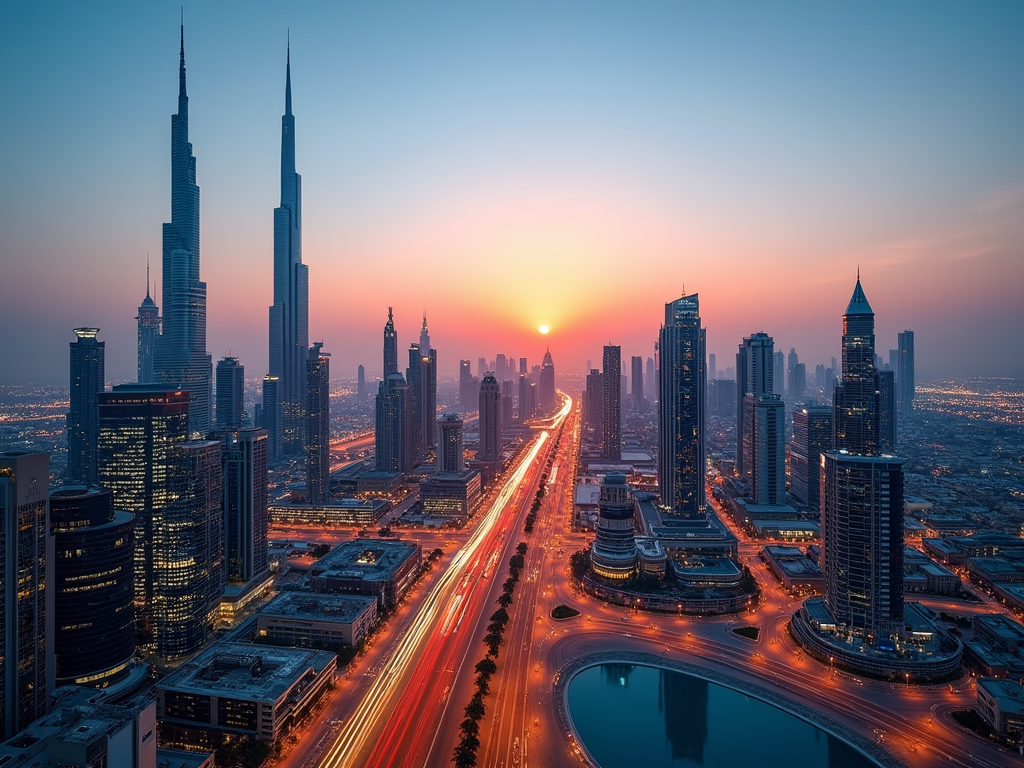Dubai has emerged as a global financial hub over the last few decades, thanks to its strategic location, robust infrastructure, and progressive economic policies. The city offers a unique blend of opportunities that attract investors and businesses from around the world. This article explores the factors that contributed to Dubai’s transformation into a leading financial center, examining its strategic initiatives, economic diversification, and regulatory framework that have fostered growth and innovation.
The Strategic Location of Dubai

One significant factor that has driven Dubai’s rise as a global financial center is its strategic geographical location. Situated at the crossroads of Europe, Asia, and Africa, Dubai acts as a key gateway for international trade and investment. This prime positioning allows businesses to easily access emerging markets and leverage the city as a base for regional operations. The following aspects highlight the importance of Dubai’s location:
- Access to multiple time zones: Dubai’s location enables companies to operate effectively across various time zones, facilitating smoother business transactions.
- Connectivity: With state-of-the-art airports and seaports, Dubai ensures direct access to global markets and enhances trade opportunities.
- Proximity to major economies: Being close to key markets such as India, China, and Europe allows Dubai to tap into vast economic potential.
Diversification of the Economy

Dubai’s commitment to diversifying its economy has played a critical role in establishing it as a global financial center. Initially reliant on oil revenues, the emirate recognized the need for a more sustainable economic model. To achieve this, Dubai has invested heavily in various sectors, including tourism, real estate, trade, and logistics. The main strategies include:
- Investment in tourism: Dubai has positioned itself as a major tourist destination, attracting millions of visitors each year.
- Real estate development: Multi-billion-dollar projects like the Burj Khalifa and Palm Jumeirah have drawn global interest and investment.
- Trade and logistics improvement: The establishment of Free Zones has enhanced Dubai’s status as a regional trading hub.
Strong Regulatory Framework
A well-defined and business-friendly regulatory environment has significantly contributed to Dubai’s financial growth. The UAE government has implemented numerous policies that encourage foreign investment and foster entrepreneurship. Some key elements of Dubai’s regulatory framework include:
- Free zones: Offering 100% foreign ownership, tax exemptions, and simplified customs procedures have attracted global businesses.
- Innovative initiatives: Programs like the Dubai International Financial Centre (DIFC) provide a platform for financial institutions to thrive under internationally recognized regulations.
- Support for fintech: Local initiatives promote innovation in financial technology, making Dubai a leader in the digital finance sector.
Technology and innovation have been pivotal in Dubai’s journey towards becoming a global financial center. The emirate has launched several initiatives aimed at leveraging technology to enhance financial services. These actions include:
- Smart Dubai Plan: Aiming to transform Dubai into the world’s smartest city, this initiative promotes technology-driven solutions in various sectors.
- Blockchain adoption: Dubai has proactively embraced blockchain technology, streamlining processes within the financial industry.
- Promoting startups: The city encourages entrepreneurs and startups through funding platforms and incubators, fostering a dynamic ecosystem.
Conclusion
Dubai’s ascent as a global financial center can be attributed to its strategic location, economic diversification, strong regulatory framework, and investment in technology and innovation. These factors have created an inviting environment for international businesses and investors, establishing the emirate as a prime destination for financial activities. As Dubai continues to adapt and evolve, it is poised to maintain its status as a leading financial hub in the years to come.
Frequently Asked Questions
1. What measures has Dubai taken to attract foreign investors?
Dubai offers various incentives such as tax exemptions, 100% foreign ownership in free zones, and a simplified business registration process to attract foreign investors.
2. What role do free zones play in Dubai’s financial sector?
Free zones provide significant advantages, including 100% foreign ownership, no personal or corporate taxes, and simplified customs regulations, making them ideal for foreign businesses.
3. How has Dubai’s government supported fintech companies?
The Dubai government offers a favorable regulatory framework, funding initiatives, and networking opportunities to encourage the growth of fintech startups and established businesses.
4. What key industries contribute to Dubai’s diversified economy?
Dubai’s economy is significantly supported by tourism, real estate, logistics, trade, and financial services, reducing reliance on oil revenues.
5. What is the Dubai International Financial Centre (DIFC)?
The DIFC is a financial free zone that operates under a distinct legal framework, providing a conducive environment for financial institutions and service providers to thrive.
